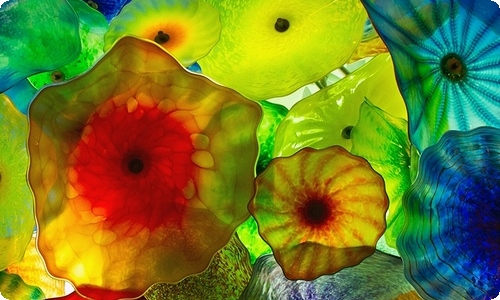
英文导游词结尾
英文导游词结尾【一】
Evening Scenes of Chongqing
The Red Star Pavilion in the Pipasha Park, the Kansheng Pavilion in the Eling Park, and a place called Yikeshu on the Nanshan Mountain are vintage points for observing the nocturnal scenes of the mountain city of Chongqing。
At night the entire city is inundated in an ocean of lights, which form a colorful three-dimensional painting, with waves of the Yangtze and Jialing rivers glistening against the moonlit, star spangled sky。
Sites of the Provisional Capital
Chongqing figured importantly in modem Chinese history。
During the War of Resistance against Japan, it was the "provisional capital" of China under the Kuomintang rule from November 1937 to October 1945。
Vestiges of that period are still there in and around the city。
These include the Red Crag Village and 50 Zengjiayan, as well as Chiang Kai-shek's mansion, Guiyuan Garden, Linyuan Garden, and the mansion of C。
C。
Kong, the embassies of various countries to China, as well as former residences of important politicians, generals and cultural figures。
Martyrs' Mausoleum at Mount Gele
The former headquarters, radio station and prison of the Bureau of Investigation and Statistics of the Military Council (a colossal secret service of the Kuomintang) at the foot of the Gele Mountain in Shapingba District have become the mausoleum for those who died a martyr's death there in China's dark days。
In the dying years of World War 11, it was the site of the "Sino0US Institute for Cooperation in Special Technology"。
Dazu Grottoes
The Dazu Grottoes in the county of the same name is best known for the stone carvings on the Baodingshan and Beishan mountains, which are fine example of grotto sculpture in the late years of Chinese feudalism。
The sculptures, done in fastidious chisel work and gracious imagery, are marked by a new sculptural language that eschews religious taboos and espouses true life。
Yangtze River's Three Gorges
Sailong down the Yangtze from Chongqing to Yichang allows visitors to see the spectacular scenery of the Three Gorges along with its splendid cultural heritage and fabled local folklore。
The cruise, which combines sightseeing with scientific, artistic and folklore exploration, is a national-caliber tourist program。
The 193-km-long Three Gorges, consisting of the majestic Qutangxia, statuesque Wuxia and ferocious Xilingxia gorges, is one of and ferocious Xilongxia gorges, is one of the world's major canyons。
Along the way there are such scenic attractions as the Fengdu Mountain。
Baidi city, Shibao village, Zhang Fel's Temple, Qu Yuan's Temple, and the Three Gorges Dam。
Lesser Three Gorges
The Daning River is the largest Yangtze tributary, which rises in the southern side of the Daba Mountain and flows for 250km before emptying itself into the Yangtze at the western entrance to the Wuxia Gorge。
The Lesser Three Gorges on the Daning River, a 50km-long affair covering the Longmenxia, Bawuxia and Dicuixia gorges in the lower reaches of the river, is billed as one of China's 40 best scenic resorts thanks to its gorgeous mountains, elegant peaks, turbulent rapids, limpid water, exotic rock imagery and serene scenery。
Diaoyu City, Hechuan
Established in 1242, or the 2nd year of the Chunyou reign of the Southern Song, Diaoyu City covers 2。
5 square km up the Diaoyu Mountain on the southern shore of the Jialing River in Hechuan City's Heyang Town。
In 1258, the Mongols launched a three-way attack on the Song, and in February the next year Diaoyu City found itself besieged。
The Song army mounted a valiant counterattack that last3ed for 36 years, and made world war history by rebuffing a strong enemy with a weak force。
This prompted some European historians to laud Diaoyu City as the "Mecca of the East" and "Where God broke his whip"。
The ruins of the ancient battlefield of Diaoyu City are well kept there。
Jinyun Mountain
Nicknamed "Less Mount Emei", Jinyun Mountain is a national scenic resort 55km from downtown Chongqing。
Furong Cave, Wulung
The Furong (Hibiscus) Cave is located by the Furong River in Wulung County。
The main part of the cave is 2,700 metres in length and 3。
7 square metres in area。
The Splendid Cave is the most impressive。
Housed in it are nearly 30 varieties of stalactites chiseled into every manner of exotic imagery by the cunning labor of nature。
Major attractions are Gold Throne Hall, Leifeng Pagoda and Sky-reaching Jade Pillar。
Chongqing Museum
Located at Pipashan Street, the Chongqing Museum is in the possession of more than 100,000 cultural artifacts, including 10,000 or so valuable ones。
Chongqing Nature Museum
Local natural history and fauna and flora samples are on display in the Chongqing Nature Museum in Beibei district, which includes a display room for dinosaurs that have been founding Sichuan。
Other Scenic Attractions
Other scenic attractions include the south and north Hot springs, Red Crag Village, Simian (Four-Face) Mountain, Jinfo (Golden Buddha) Mountain, Earth's Chasm at Tianjing Gorge, and Heavenly Crate at Xiaozhai village。
Three Gorges Tourist Festival
Time: June every year
What's On: Cruise on the Three Gorges of the Yangtze River, the Ghost City at Fengdu, Dazu Grottoes, Shibao Village, Zhang Fei's Temple, Baidi City at Fengjie and Lesser Three Gorges。
Other activities include float parade, full-length variety show and tourist business talks。
韶山英文导游辞【二】
Good morning! Ladies and Gentlemen:
Today, we will go and visit Shaoshan, the hometown of Chairman Mao。
Shaoshan is a small mountain village about 100km southwest of Changsha, the capital of Hunan province, with some fairly beautiful scenery and a once typically Hunan village atmosphere, Shaoshan has been irreparably changed by history。
On the 26th December 1893, a baby was born in a little house in this village, to a relatively wealthy peasant couple。
The child was to grow up to become China"s Great Helmsman, Chairman Mao Zedong, and it was in this region that he spent his childhood and youth, attending school and helping his father with his work。
As the hometown of the great man of the generation, now Shaoshan is one of the important tourist zones in Hunan province。
The major tourist sites including the Former residence of Chairman Mao, Memorial Hall of Mao Zedong, Water-dripping Cave and Steles Forest of Mao"s Poems,and so on。
The former residence of Chairman Mao is the most interesting site。
Entered through a courtyard, the house is of a sunny yellow, mud brick walls, with a nicely thatched roof, and is found on a wooded hillside, above some lush paddy fields。
There are 13 and one half rooms in the Former residence, which include one and half central room, a kitchen, a dining room, three family bedrooms and a guest room。
Within the rooms are various personal effects of Mao and his parents, as well as photos from Mao"s life。
This is the central room, it was used by two families: Mao’s family and their neighbor。
So we said that there is only one half of the central room belongs to Mao’s family。
And this is there kitchen, where Chairman Mao often helped his mother doing some housework in his childhood。
Go through the kitchen was Chairman Mao’s parent"s bedroom, there are two photos of Chairman Mao’s parents on the inner wall, and it was in this room where Chairman Mao was born。
The Dripping Water Cave, about 3 km northwest of the village, is a very popular destination, possibly because of the fact that Mao allegedly spent 11 days here in the early days of the Cultural Revolution Years (1966-76), contemplating the unknown。




